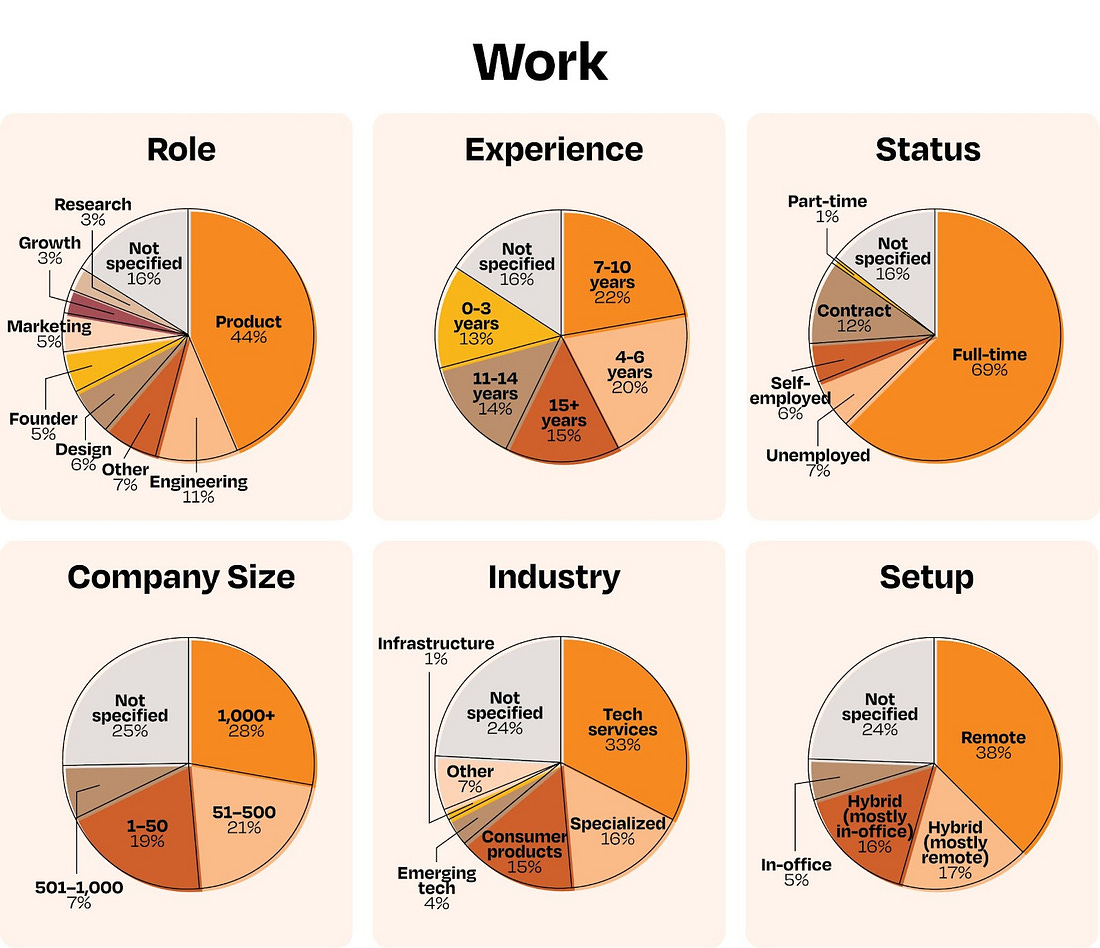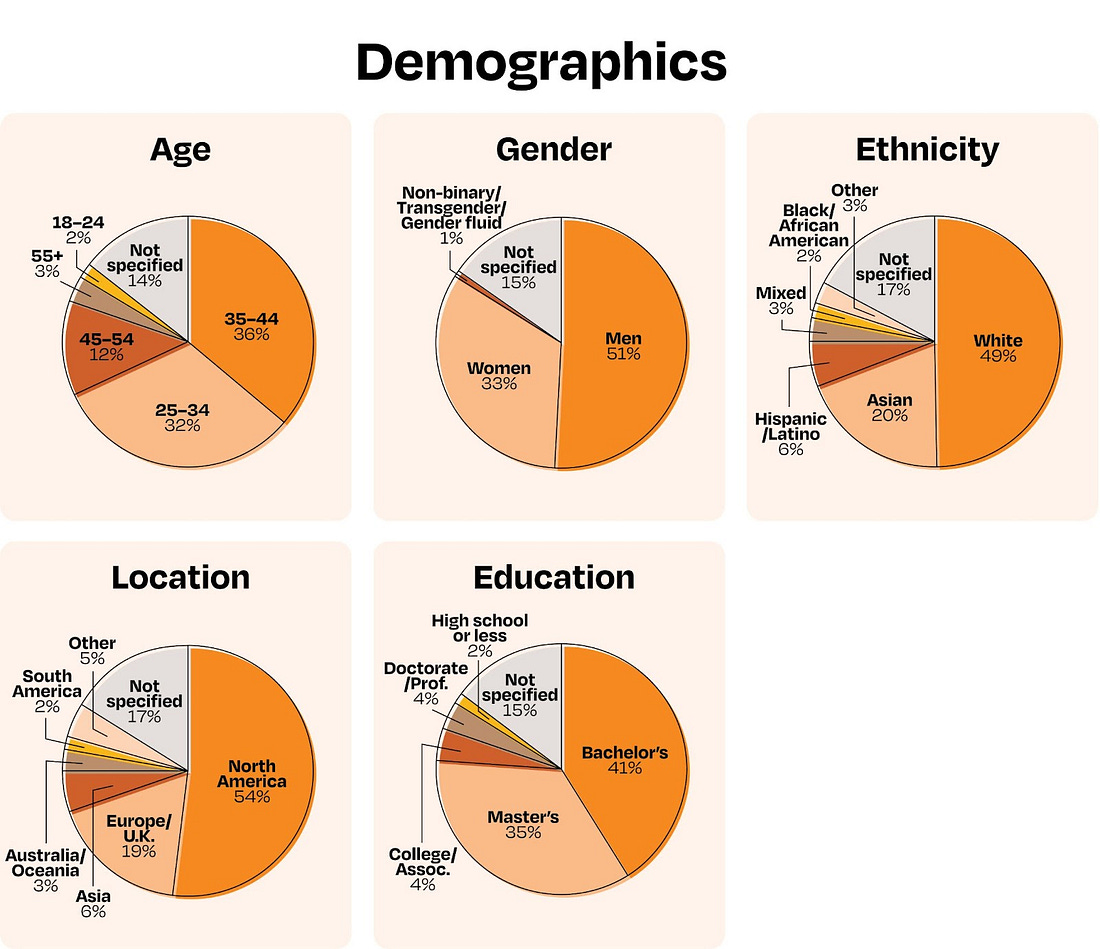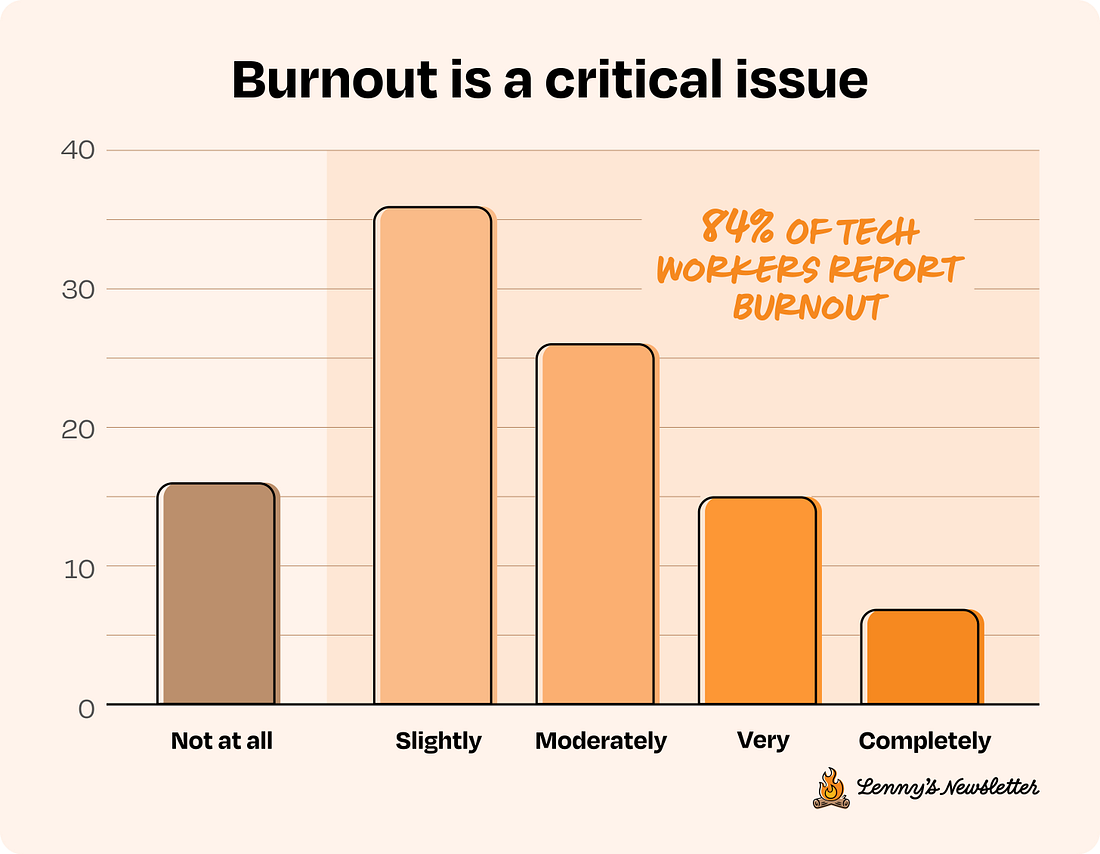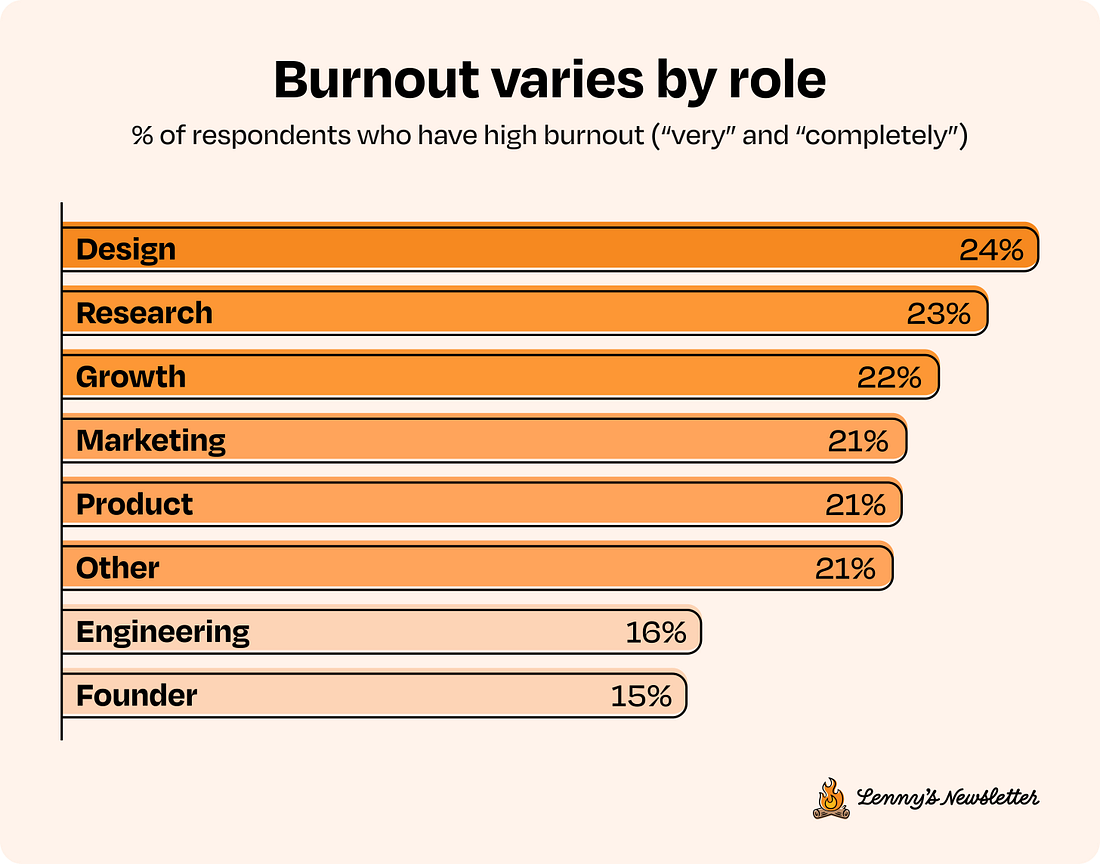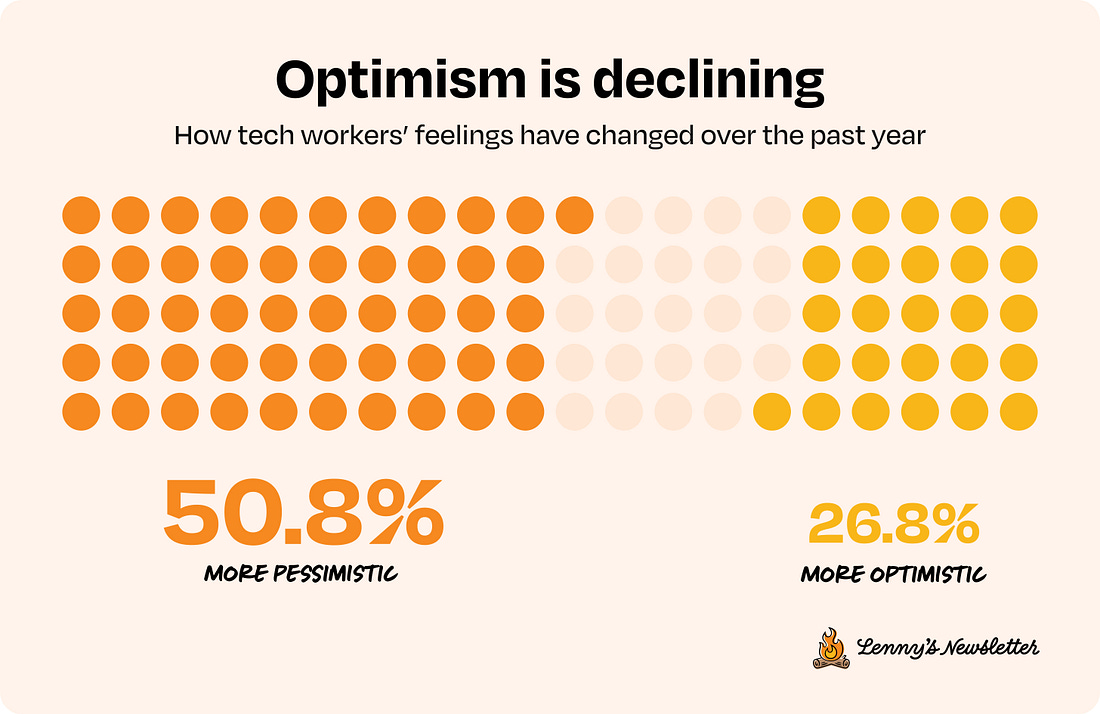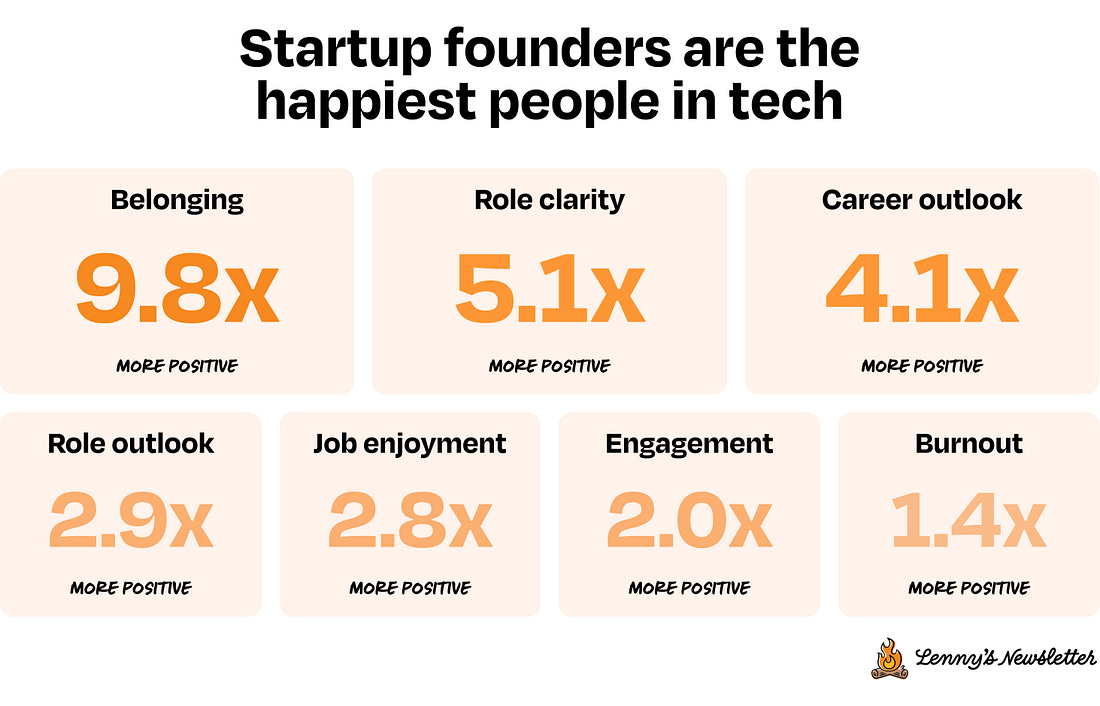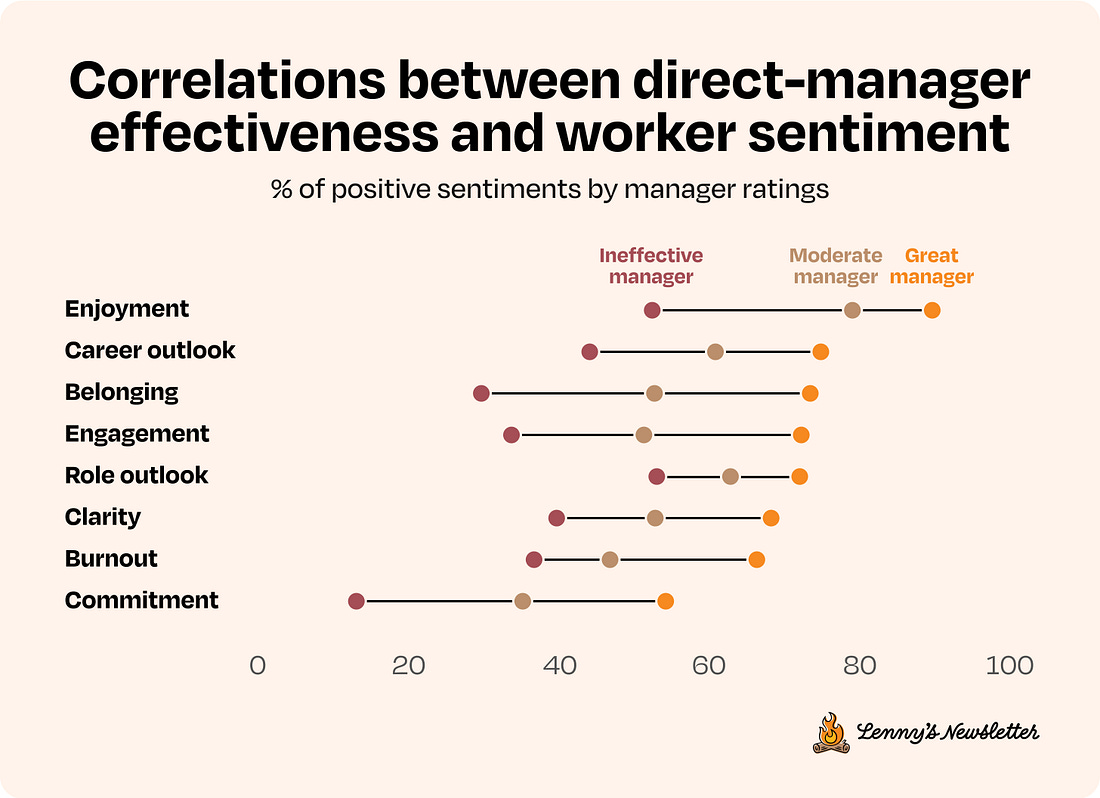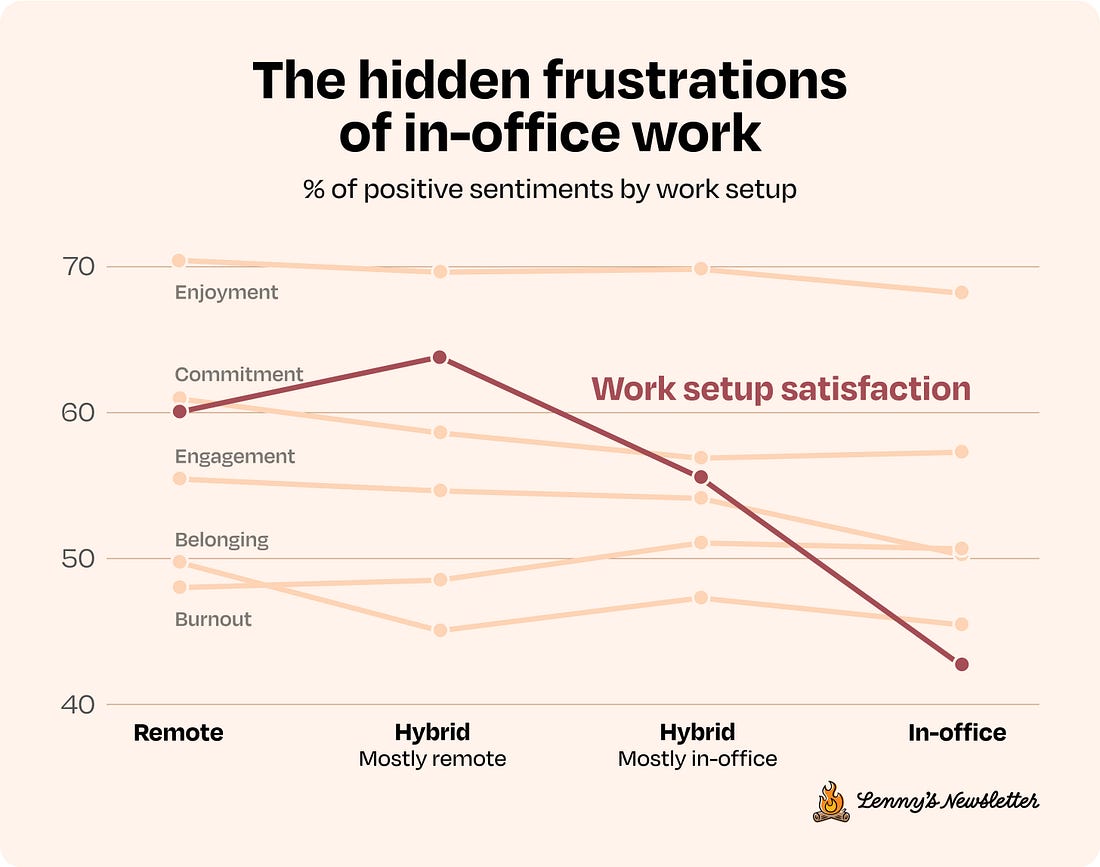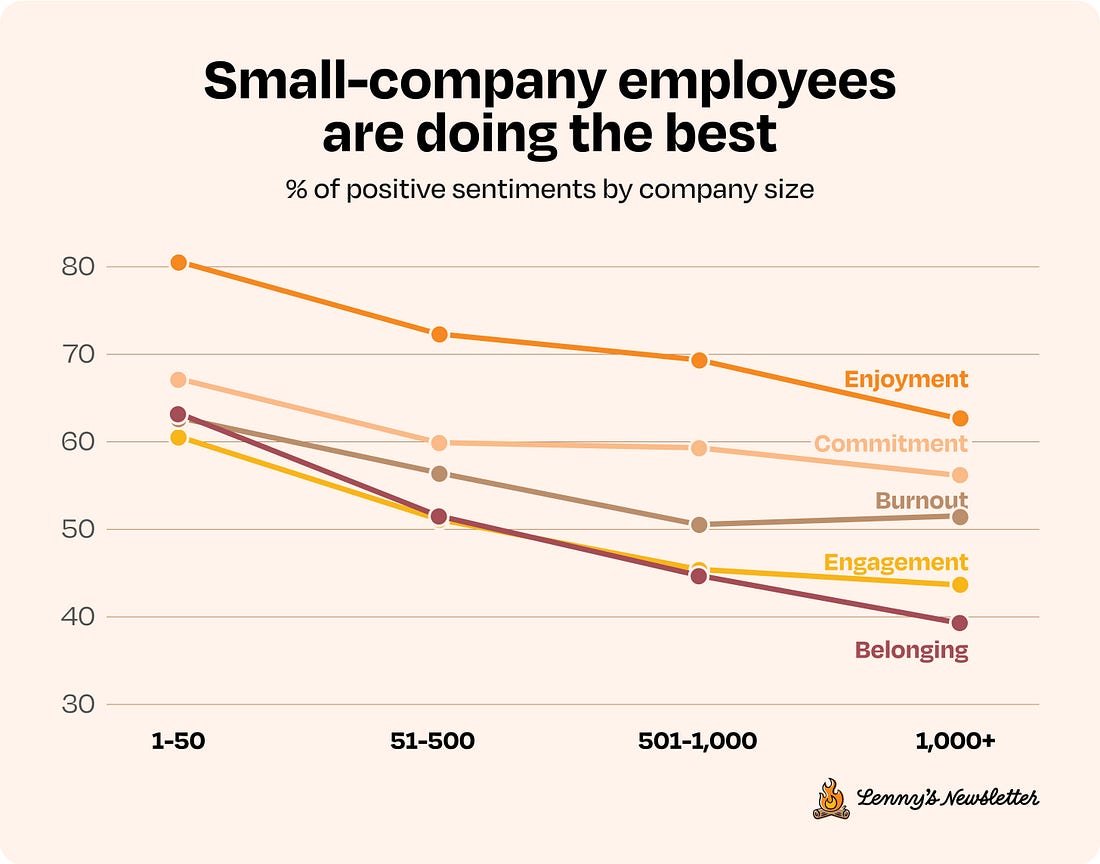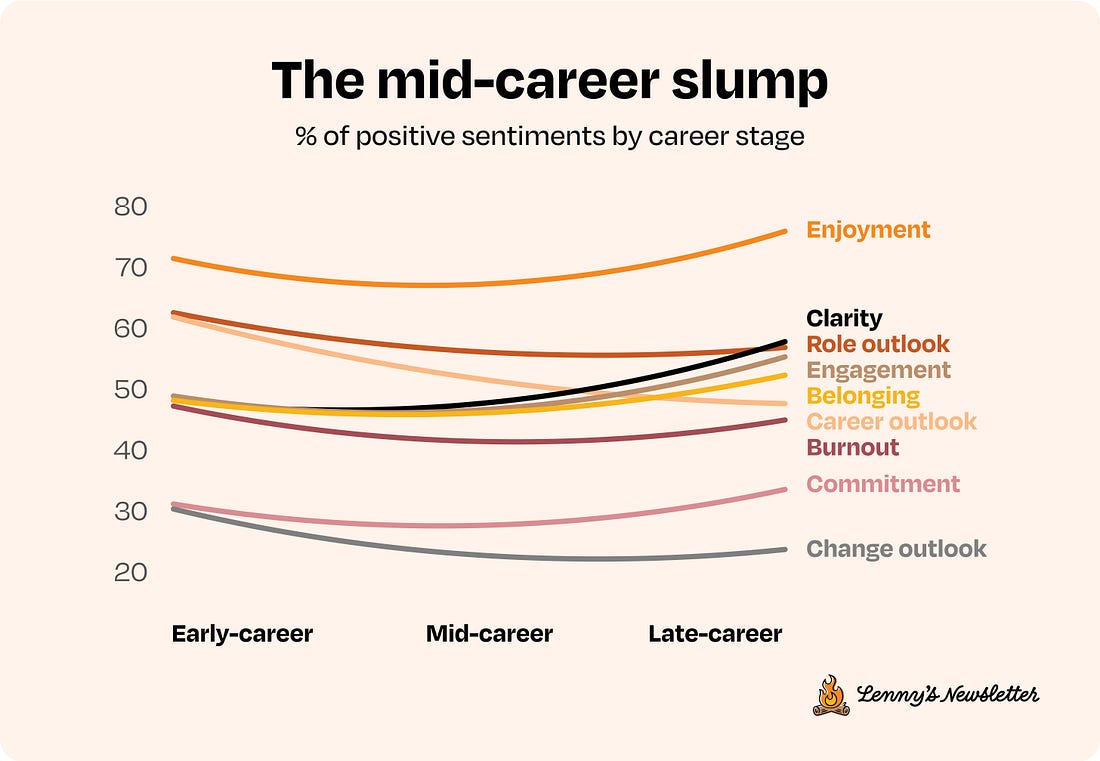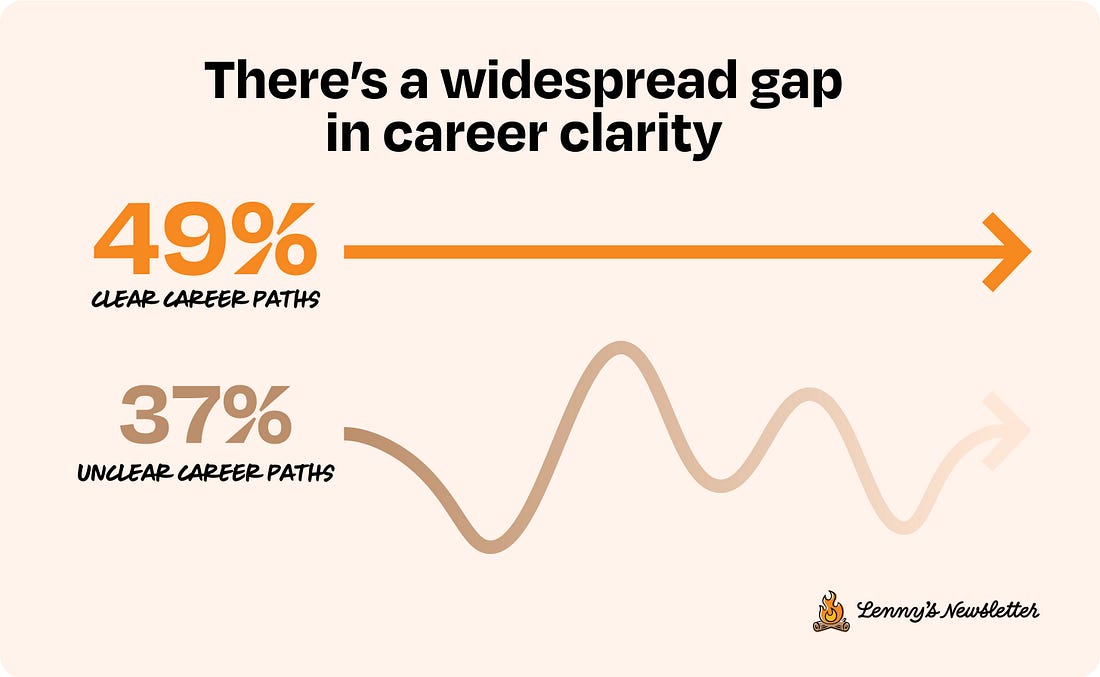How tech workers really feel about work right now
How tech workers really feel about work right nowResults from our first-ever large-scale tech worker sentiment survey👋 Welcome to a 🔒 subscriber-only edition 🔒 of my weekly newsletter. Each week I tackle reader questions about building product, driving growth, and accelerating your career. For more: Lenny’s Podcast | How I AI | Lennybot | Lenny’s Reads | Courses | Swag Annual subscribers now get a free year of Bolt, Perplexity Pro, Notion, Superhuman, Linear, Granola, and more. Subscribe now. Today, with insights from over 8,200 of you (thank you to everyone who participated!), we’re excited to share the results of our first-ever large-scale tech worker sentiment survey. It’s hard to imagine a more intense time to be working in technology, so Noam and I wanted to capture a rich picture of tech workers’ sentiment—at this moment, and going forward. Our analysis examines several dimensions of tech worker sentiment, including career outlook, role satisfaction, burnout, quitting intentions, career path clarity, leadership effectiveness, work setup preferences, and more. What we discovered is that tech professionals are experiencing a fascinating mix of emotions about their careers in 2025. P.S. If you prefer, you can listen to this post in convenient podcast form: Spotify / Apple / YouTube. Our biggest takeaways
How we ran the survey and who respondedWe started by asking about people’s optimism (or pessimism) regarding the future of their role and career. We also asked people to reflect on the past year in tech and how their feelings had changed. We then dug into people’s work experiences, including enjoyment, burnout, quitting intentions, career development thoughts, and manager effectiveness. Finally, we explored how people feel about their work environments, how engaged they are at work, and how much belonging they feel in their organization. Takeaway 1: Burnout is a critical issue facing the tech workforce
Takeaway 2: Tech workers are more optimistic than we expected—but optimism is decliningWe asked tech workers how optimistic or pessimistic they are about:
Broadly speaking, tech professionals maintain a positive outlook, with 54.8% expressing optimistic career sentiments, versus 33.3% expressing pessimistic views. Job function sentiment is even rosier, with 58.5% reporting optimistic feelings and only 25.1% pessimism about their specific role. In both cases, the rest of the respondents selected “neutral.” We were curious to understand how each respondent views the future of their career compared with the future of their role. So we dug deeper into the comparison between current roles vs. long-term career prospects:
This means that while many tech workers feel good about their immediate job situation, they have more concerns about long-term industry trends and career progression. But optimism seems to be declining. We asked tech workers how their feelings have changed over the past year, and there’s been a significant negative shift in sentiment: This could be due to the economic climate, the rise of AI, or other factors we’re still investigating. Only two segments have become more optimistic over the past year: founders and new college grads. Conversely, designers and researchers had the largest negative sentiment change. Employees at large companies feel more pessimistic, as do fully remote workers. Takeaway 3: Startup founders are the happiest people in techOne of the most striking patterns is that founders have the most positive sentiments across nearly all metrics compared with other tech roles:
This remarkable pattern suggests that ownership, autonomy, and purpose are potent drivers of work satisfaction and well-being. Takeaway 4: Managers need helpFewer than 1 in 3 tech workers (26.6%) rate their managers as highly effective, while more than 4 in 10 (42.3%) rate their managers as ineffective. But the mind-boggling insights are the correlations (which don’t imply causation!) between direct-manager effectiveness and worker sentiment. Leadership impacts virtually all worker sentiment dimensions. For most sentiment metrics, there’s a massive gap between those who rated their managers as ineffective and those who rated them as extremely effective.
Retention is also deeply impacted by manager ratings:
Leadership quality may be the single most important lever for retention. It’s tied to substantial increases in engagement, belonging, and enjoyment, and notable decreases in burnout. Interestingly, remote leadership was rated slightly more effective than in-office leadership, challenging assumptions about remote management challenges. Leadership effectiveness ratings gradually decline as company size increases, with small companies showing modestly better leadership perception than large enterprises. People in product and design roles have the most negative leadership perceptions. The leadership effectiveness gap represents a major opportunity. With only 26.6% of workers rating their manager as highly effective, improving leadership quality represents one of the highest-leverage investments organizations can make. Takeaway 5: Hybrid workers feel better about their job; in-office workers feel better about their careerOver 50% of tech workers in this sample are primarily working remotely (37.7% fully remote, 16.9% mostly remote). Only about 5% of respondents are in an office every day (a ratio that’s in line with current industry data). At first glance, the data seemed to suggest that tech workers are feeling just about the same, no matter where they work:
But when we dove deeper, we revealed some unexpected patterns:
In other words, hybrid workers are feeling a lot better about their job, but in-office workers feel better about their career prospects. What this all means:
It’s also important to note that several confounding variables may be in play regarding work location. Age, company size, and role distribution are all related to work setup. It’s possible that some differences are due to those factors rather than the work location itself. For example, remote workers skew older (45.1% ages 35 to 44, vs. 30.8% for in-office). Or hybrid arrangements are more common in larger companies (30% at 1-to-50-employee companies, compared with 46.6% at 1,000-plus-employee companies). Takeaway 6: Small-company employees are doing the bestCompany size emerges as one of the strongest predictors of positive sentiment, with statistically significant differences across organization sizes for 9 out of 11 sentiment metrics. People in smaller companies are:
These findings reinforce the importance of creating tight-knit teams and smaller communities within large organizations. Big companies must foster a sense of connection and purpose that’s clearly lost when they grow beyond their first 50 to 100 employees. Takeaway 7: The mid-career slump is realCareer optimism declines with experience, and the decline is substantial, with early-career workers scoring 15% higher than their later-career counterparts. But across multiple other sentiment variables, we observed a U-shaped pattern with age and experience:
Engagement and belonging remain fairly consistent from early to mid-career stages. Late-career professionals report the highest levels of engagement and belonging, and also enjoyment, clarity, and commitment. Apparently, if you make it through the mid-career slump and find your niche, you become more content compared with earlier-career workers. This pattern suggests that organizations should pay special attention to mid-career professionals, who may be experiencing a “career crisis” when early enthusiasm has waned but long-term career resilience and clarity haven’t yet developed. Takeaway 8: There’s a widespread gap in career clarityWe asked tech workers how clear they are about the skills and career development paths they should pursue to reach their professional goals. What we found is widespread uncertainty: Career clarity was strongly related to our other key sentiment metrics, particularly engagement and leadership perception. It’s hard to be an engaged worker when you’re not sure what to engage in. And managers play a critical role in setting expectations and guiding workers along their career path to secure their future. This uncertainty around career development likely contributes to career anxiety and the negative shifts in future outlook we’ve observed, and it may partly explain the high percentage of professionals considering quitting (about 40%). Bonus takeaway #1: Women are more burned-out (but more engaged) than menIn this sample, more women reported being burned-out—or burned-out to a greater degree—than the male respondents did. We’re not talking about massive gaps but, rather, consistent patterns that show up across large samples:
Women also reported slightly lower enjoyment and more negative emotional impacts from their work setup. Now, these might seem like small differences (and statistically speaking, they are small effect sizes), but they’re significant. Small sentiment gaps can have outsized impacts on retention and performance over time. But interestingly, women respondents said that they’re also more engaged and have a stronger sense of belonging than the men we studied. What does this tell us? Women in tech are feeling more connected and committed to their work (and work communities), while simultaneously feeling more strained and less optimistic about their future in the industry. The differences may be small, but it’s important to be mindful of trends like these that can hurt women’s equity and inclusion in the industry. Bonus takeaway #2: AI is keeping tech workers up at nightAbout 1,750 of our respondents shared more about how they’re feeling about working in tech. Two themes stood out (and they’re both about AI): 1. Tech workers are navigating existential anxieties and the practical realities of AIMany respondents expressed deep uncertainty about the future of their roles and the tech industry as a whole:
And there’s a real struggle to distinguish AI hype from the current practical realities of the technology:
2. The AI era is a time of career transformationsA significant number of our respondents are questioning their career path and fundamentally reconsidering their profession, not just their current job. Some are making deliberate career moves to “future-proof” themselves, focusing on whatever they perceive as more “AI-resistant.”
However, there are plenty of barriers to these strategic repositioning attempts, in particular those we’ve already called out—lack of managerial support, uncertainty about which skills to develop, and limited internal mobility.
The AI era has also bolstered entrepreneurial ambitions: a notable number of our respondents expressed interest in building their own products as a response to industry uncertainty. Some have already gone for it.
Where do we go from here?The data paints a clear picture of how tech workers are feeling. Burned-out, but somewhat optimistic. Seeking more autonomy and control, but also guidance and inspirational leadership. Searching for clarity, and hoping it comes with flexibility and an environment where they can feel belonging. It’s a complicated moment to be working in tech for sure. To give you something tactical to take away immediately, here’s what the data tells us you can do if you want to be happier at work:
And here are the five highest-leverage moves companies can make to give tech workers what they seek right now:
While executives fret over AI disruption and remote work policies, our data reveals more layers to what’s going on with tech sentiment. The companies that will dominate the next decade won’t be those that stop at developing the most advanced AI or the fanciest offices, but those that recognize that treating people like founders rather than functions may be the ultimate competitive advantage. Special thanks to the more than 8,200 tech professionals who shared their insights for this survey. Your candid feedback will help us track sentiment in the tech industry and identify areas for improvement. Have a fulfilling and productive week 🙏 If you’re finding this newsletter valuable, share it with a friend, and consider subscribing if you haven’t already. There are group discounts, gift options, and referral bonuses available. Sincerely, Lenny and Noam 👋 Invite your friends and earn rewardsIf you enjoy Lenny's Newsletter, share it with your friends and earn rewards when they subscribe. |
Similar newsletters
There are other similar shared emails that you might be interested in:
